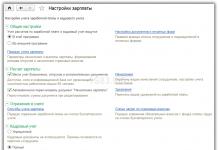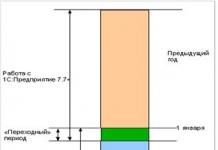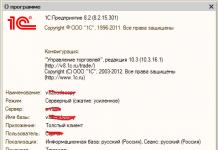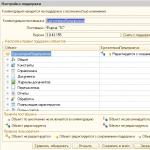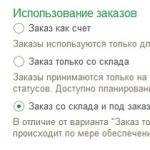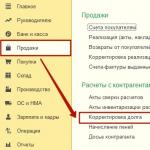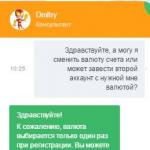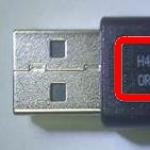Making predictions is a thankless task. Reminds me of the movie Back to the Future. According to the story, all teenagers should already have self-lacing sneakers and flying skateboards. And neither one nor the other is yet to be seen. But still, let's dream up a little and imagine what the school of the future will look like.
Learning process
Informatization is no surprise. Electronic diaries that allow you to check your child's grades via the Internet. The Attendance and Meals system, thanks to which parents receive push notifications on their phones immediately after the child has entered or left school. It's not even worth talking about electronic textbooks-tablets and interactive whiteboards.The IT industry is developing at a tremendous pace and is not going to stop. Soon all children will be able to receive all the necessary information in online lessons and take exams at the best universities and colleges without leaving home.
If all information is freely available, the question inevitably arises - how will the role of the teacher change? Many people still perceive the teacher as a "mentor" and practically the only carrier of information. But in the future, the teacher will become rather a kind of "guide" to the world of information.
Both the role of school education and the very meaning of the term "educated person" will change. Today, an educated person is called a person who has a lot of information (one who remembers Ohm's laws, the plot of the tragedies of Sophocles and "Eugene Onegin" by heart). In the future, this amount of knowledge simply will not make sense, and educated people will be those who know where to find information, how to check it and how to handle it.
Environment and architecture
More and more architects, urbanists and, of course, futurologists are talking about the so-called "smart environment". What does it mean?There are no prerequisites for buildings to become larger and more spacious. Rather, on the contrary - they will narrow, but at the same time become more functional. And offices, and homes, and educational institutions will be able to "read" human behavior, adapt to his needs and even control his performance.
Imagine a school desk that counts how much time a child spent studying and how much talking with classmates?
Nutrition
Even now, nutrition in schools is changing noticeably (this is a global trend). Children are trying to feed less heavy, high-calorie foods and more and more - useful, according to modern nutritionists, products.It is understandable - children, like the rest of humanity, move less and eat more and more. Should something be done about it?

This year, Moscow schools also began to change the school diet. Removed semolina, replacing it with less high-calorie cereals and cottage cheese products. Sweet buns have been replaced by healthy grain bread. Added more egg and meat dishes. Both tasty and healthy.
In the future, the process is likely to develop in the same way. A daily diet calculated to the smallest detail, or maybe completely replacing our usual food with substances that already contain all the necessary trace elements.
The so-called "Soylent" has already been invented - a drink, using which you can live without food at all and feel great (it already contains all the substances necessary to maintain life). The benefits of such inventions for government agencies can hardly be overestimated. Of course, it's a little sad to imagine a future without a sweet bun and a cup of tea, but cost and time optimization is likely to win here too.
Mugs and sections
Previously, additional education meant some kind of cute childhood hobby that has almost no use in adult life (a soft toy, beadwork or wood burning). Today, more and more classes are subordinated to the development of some skill that will come in handy in the future. Foreign languages, robotics and even the study of nanotechnology are all included in the program of additional education in Moscow.
More and more children are switching to project activities. This is due to the fact that the professional life of most people is changing - if earlier schools prepared executive workers, now creative minds and managers capable of informal solutions and multitasking are more in demand.
Already, children are developing individual projects in parallel with their studies. For example, students of the Moscow Lyceum No. 1502 this year developed a "smart material" that will be indispensable in facial surgery in the future. And another metropolitan schoolgirl, Daria Ekimova, invented a decoder for the language of the deaf and dumb.
So the day when children will be engaged in scientific and creative activities on an equal basis with adults is not at all as far away as it seems.
Is such a load good for the emotional state of the child? The question is moot. But what we can really agree with is that the life of adults is also becoming more and more time-consuming, and in the future a person will need even more intellectual effort to maintain professional activities.
Education plays a major role in the development of the social individual. Its development cannot stand still, its task is to keep pace with the times, in other words, to undergo innovations characteristic of a certain era.
The meaning of any innovation is to try to create approaches to the education of a new generation and put them into practice. And, undoubtedly, any innovations should be based on the requirements of modern society and take into account the development of political, economic, informational spheres of human life. Among the main areas that should take into account certain innovations in the educational sphere, we can single out:
Educational process
Moral and mental education
Personal development
Adequate humane structure of sanctions
In my opinion, in educational institutions in 20-30 years, classes will be held on a voluntary basis and with a more developed qualification system. It will be a kind of educational corporation, whose task is to educate a person in the most versatile way, regardless of his age, nationality, worldview. The only thing that a potential student of such an educational institution will need to have is desire and perseverance.
Teachers will teach their subject absolutely using new technologies.
Thus, students will be distributed according to the level of understanding and the speed of education into districts, the difference of which is only in the rate of presentation of information. The task of the teacher at this moment will be the same as at the present time - to adapt to the student, understand his psyche, try to win over him.
If traditional lessons fade into the background, they will give way to such educational activities as: trips to the laboratories, short-term training on the basis of a higher educational institution, courses of additional and basic qualifications, practice based on enterprises.
If we touch on the topic of distance learning, then there is absolutely nothing new here. Online learning has long been practiced by many tutors and teachers. Yes, it is still impossible to get a secondary education completely remotely, but on the Internet there are many proposed options for receiving distance education on the basis of a higher educational institution remotely.
I believe that in 20-30 years, most likely, the education of many countries will undergo, at most, only analogue innovations, consisting in joining the already known method of teaching private innovation. Retroinnovations, which involve the introduction into pedagogical activity of those approaches that have been forgotten over time, are being eradicated and, many will agree, have no relevance. At the moment, combined innovations are operating in the educational field and will operate in any era, because their meaning is the combination of different pedagogical technologies and methods in order to improve educational practice. Essential innovations, implying the introduction of previously unused innovations into the educational system that affect the very essence of education, will not be implemented, in my opinion, soon, due to the country's economic crisis and the inability to motivate and "build" education in Russia.
Finally, I would like to quote for conclusion the words of one of my favorite ancient Roman politicians - Gaius Julius Caesar: "Great things must be done, and not thought over endlessly", and I am infinitely right with him, because there are many proposals for changing the structure of the educational sphere, but not a single one. Of these, the government is either unable or unwilling to implement.
I imagine my school in the future as a large beautiful building. Perhaps it will be a slightly different shape than it is now - rounded, for example. On the walls of the building there will be images of paintings or animals. All windows will be mirrored, reflecting sunlight. I like it when trees grow near the school, and in the future, I think this will be the case. Flower beds, fruit trees and various bushes will encircle the school building, giving coolness and comfort on a summer day.
Inside the school, I imagine many pictures. On the ground floor there is a large TV broadcasting entertainment programs so that you can mentally relax during the break. All classes of the future school are equipped with computers. Textbooks will be on electronic media, so that it is not so hard to carry them in your backpack.
In the future school, all students wear uniforms, as do teachers. Each school has its own uniform so that you can immediately understand who is studying where. In the school canteen, everything can be obtained from vending machines, this will allow you not to create a queue. In addition, I think that the school of the future will have a spacious gym with everything you need to practice various sports. It will be possible to open sports sections there, allowing you to play sports after school. Also, the school will have a spacious swimming pool, giving the opportunity to practice swimming or water sports.
I imagine my school in the future as a large beautiful building. Perhaps it will be a slightly different shape than it is now - rounded, for example. On the walls of the building there will be images of paintings or animals. All windows will be mirrored, reflecting sunlight. I like it when trees grow near the school, and in the future, I think this will be the case. Flower beds, fruit trees and various bushes will encircle the school building, giving coolness and comfort on a summer day.Inside the school, I imagine many pictures. On the ground floor there is a large TV broadcasting entertainment programs so that you can mentally relax during the break. All classes of the future school are equipped with computers. Textbooks will be on electronic media, so that it is not so hard to carry them in your backpack.
In the future school, all students wear uniforms, as do teachers. Each school has its own uniform so that you can immediately understand who is studying where. In the school canteen, everything can be obtained from vending machines, this will allow you not to create a queue. In addition, I think that the school of the future will have a spacious gym with everything you need to practice various sports. It will be possible to open sports sections there, allowing you to play sports after school. Also, the school will have a spacious swimming pool, giving the opportunity to practice swimming or water sports.
And most importantly, the school of the future will have the most kind and sympathetic teachers, and obedient students striving for knowledge. This is how I envision the future of the school.
On the first weekend of February, according to tradition, meetings of school graduates are held in the cities and villages of our country. This year it will be 20 years since my classmates and I left school #5 for adulthood. Each of us has a different life. Many have achieved significant heights, while someone, on the contrary, sank to the bottom.
Today I invite you to a virtual meeting of my classmates. Let's see how it used to be.
1. All photos were taken by me at different times, with different cameras and may not be of the highest quality, so I apologize in advance.
This is our secondary school number 5. It was built sometime in the late 70s. Our area at that time was new and the school was first-class and the most advanced in everything. We had special classes in mathematics, English, physics. The school had a workshop for the production of wooden furniture and metal locks. 
2. The school had a modern gym, stadium and skating rink. Then the skating rink was gone, the sides for playing hockey disappeared. 
3. As a child, I was often sick and was a frail child. Sometime after the fourth grade, I decided to go in for sports and get an A in physical education in order to become a straight A student. Since then, the crossbar has become for me a kind of pass to the gym, I went in - I pulled myself up, and at the exit too. 
4. However, I was not taken to the competition, because I did not have any sports data. I was taken to the hockey team only after the intervention of my parents. When I came home from school, I burst into tears and told my mother about my great "hockey grief", but then she talked to the physical education teacher. True, they let me out on the ice only during the break, and then I spent the whole game on the bench. So the great hockey player in me died. But I didn't stop pushing. Now I easily make the standard 12 times.
Below in the picture is one of the physical instructors of the school Petrenko Alexey Alekseevich. It was he who told us about the NBA and bodybuilding. He is the man who opened the "rocking chair" at school and thanks to whom I go to the gym three times a week to this day. I do everything as he taught: 3 sets of 12 reps. 
5. Our yard team after winning the school relay. Igor Perko, Maxim Kotov, Sasha Evdokimov, Vadim Kaptilovich, Sergey Polyakov and me. 
6. A lot happened during those ten school years. Now you can't even remember everything. Maybe only the most important thing: the first teacher Bobko Vera Petrovna. In Russian, I had a strong B. "You, Dima, will never write for five," she said, and apparently that's why I began to write compositions. Let with errors, but it was a kind of breakthrough. Then there were competitions of poems, Olympiads in Russian language and literature. Maybe this blog is also the result of those aspirations to "prove" to the teacher that I can. One gets the impression that the entire education system was built on what they tell you - "it will not work", and you, in spite of everything, achieve results.
Eighth grade, 1991. 
7. My classmates and I went to the last demonstrations on November 7th. Perestroika is in the yard, and I'm wearing a jacket from Poland and a "Turkish" sweater. 
8. This is my best childhood friend - Sasha Evdokimov. We lived with him in the same house, and when our parents brought us to the first grade, we were assigned to different classes. During the break, Sasha found me and brought me to the 1st B, telling the teacher that we were friends and would study together. 
9. Since then, all 10 years we have been "do not spill water." They sat at the same desk, gave each other homework to write off, skipped classes together. This is us before the trip "for potatoes". Fashionable jackets for those times, which we made from old school uniforms, cutting off the sleeves and putting on badges. I have a wristband with metal rivets on my arm. On the feet are imported sneakers. 
10. There was no Photoshop at that time and I made collages with my own hands, photographing and cutting out pictures. Appeared in total darkness. There were such masterpieces. Sasha then liked Tanya, well, we joked about it. 
11. Tanya Malyavko - class leader. The organizer and the only one of us who was accepted into the Komsomol. The rest did not have time, the organization, like the country fell apart. But we managed to visit the Octobrists and Pioneers. 
12. Misha Kurbatov - his house was near the station, in the city center. There we gathered and listened to Tsoi on his tape recorder. 
13. Olya Smolyak is the tallest girl in our class. 
14. Olya Sorokopyt. Oh, and many hearts broke on the threshold of her house. And how many fights and fights there were for the right to be friends with Olya. 
15. Vika Brichkovskaya is the most mysterious girl in our class. I rarely attended classes, but I passed all exams. It was said that she had some very influential patron. 
16. Natasha Kolodko - always cheerful, the soul of the company. 
17. Vadim Kaptilovich - a wonderful football player, he could disappear at the stadium for hours. 
18. Igor Perko is a very businesslike friend, the first in the class who learned to drive a car. All the boys were very jealous of him then and asked him to come to school in his father's car. Now the head of traffic police. 
19. I happened to visit school many years after graduation. This is what the hallway looks like. 
20. The door to our 11th grade B. 
21. Our class was thematic - a physics room. Here we studied the laws of the structure of the Universe, wrote laboratory papers, passed exams. In the 6th grade, I wanted to take a textbook on astronomy from the library, but they didn’t give it to me, saying that it was too small. Advised to come back in 4 years. But I still secretly took it out of the library. For a long time I did not show anyone until I studied everything. 
22. Nikolai Petrovich Moiseenko - teacher of physics. The first bike trip, a look at the moon through a telescope, a calculator program, the Beatles albums - it was he who showed us all this. And he also came up with such a system of options for his control, so that no one could cheat from the person sitting next to him. I sometimes had to solve all eight of them in 45 minutes to help my comrades, because I knew astronomy since the sixth grade. This is his closet. It seemed that all the secrets of the world were kept behind that door. How many interesting devices are on the shelves and everything has been working for many years. 
23. I did not believe my eyes - I was sitting on this chair. 
24. It was made in 1982. 
25. Our class teacher Novik Anna Leonidovna is a teacher of the Belarusian language and literature and her current class. I could never get used to her "Russian" speech. Previously, portraits of writers and politicians hung on the walls, now there is only one left. You know what. 
26. Oh, and it was probably hard for her with us, because she took us in the 9th grade, when we were all already in character. 
27. Today's computer science class and its teacher Carlos Cuban. In our time, there were computers "Agat" with two games "Parachutist" and "Snake". 
28. New teacher. Unfortunately, I didn't write down the name. 
29. My English teacher is Sergeeva Irina Alexandrovna. With her son and my classmate Zhenya, we sometimes hooligans at school, for which he got more than others. Who then would have thought that I would speak English more often than Russian. 
30. Well, now about the sad. Our school is very old, and education in the country is state-owned. For 20 years, the state has not found the money to renovate the School. 
31. The toilets in the toilets are still broken. 
32. The roof is leaking. 
33. Pipes flow under washbasins. 
34. No faucets. 
35. Nothing to cover the roof. 
36. This is our head teacher Barsukov Oleg Petrovich and director of the school Bystrik Alexander Stepanovich. These people do everything possible to ensure that children get an education in the first place, and try to keep the school in working order. The teacher must teach, and the faucets must be repaired by the plumber. If it is the other way around, it will turn out the way it has now turned out in one small country. 
37. With Alexander Stepanovich we talked for a long time about school problems and affairs, recalled the old days. Reviewed class magazines of the past years. He is an outstanding person, very progressive-thinking. Alexander Stepanovich enjoyed great respect among us and among ourselves we called him "chief". His word was law to us. What can not be said about the city administration, they did not like him there, because the School did not raise ideological blockheads, but brought up free-thinking people. Apparently that's why they didn't give money to the School. But nothing, Alexander Stepanovich, the main thing is not money, but truth. And whoever has the truth is stronger. 
You can write a lot about the School for a long time. It's hard to put all 10 years into one post. I would love to hear about the life of my classmates. Where are they now, what are they doing? All the information that is on the site of the same name is of course available to me, but there are only a few, and there were 26 of us in the class. We entered the history of the school as the most "medal" class - 16 gold and silver medalists, winners of regional and republican Olympiads. After leaving school, many continued to receive higher education, enrolling in the most prestigious universities in our country. Happy 20th birthday, my classmates!
P.S. Do not be offended if I did not mention someone, I posted only those photos that I could find in my archives.
Update: It was reported that the ice rink has already been restored. Everything is in order with the toilets and the roof, because the country no longer needs free people and Alexander Stepanovich is no longer the Principal of Secondary School No. 5...
Stay in touch. I'll be back soon.
